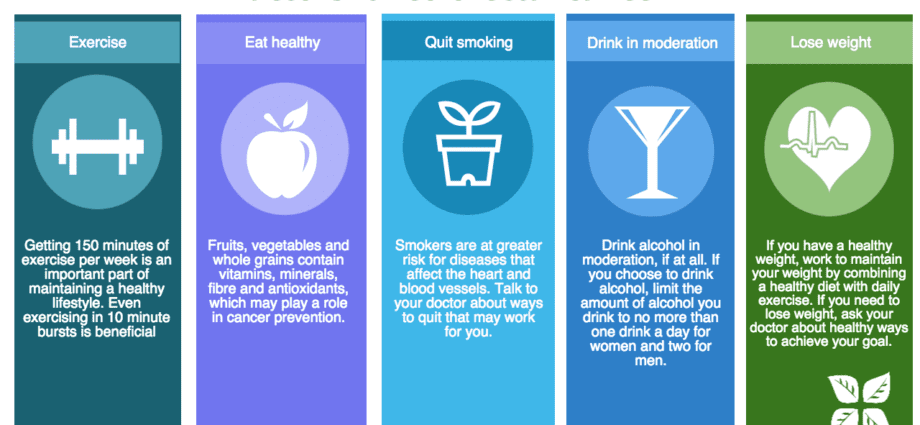Prevention of colon cancer
Screening measures |
Submit to a screening test past the age of 50. If 60% of people aged 50 to 74 had such a test every 2 years, it is estimated that the number of deaths from colorectal cancer could be reduced by 15% to 18%5. It is with this in mind that the Quebec Ministry of Health and Social Services is currently working on setting up a screening program that will target all people aged 50 to 74. This program will meet the criteria we describe below.
For people at risk. With a family history of colorectal cancer or inflammatory bowel disease, for example, it may be advisable to have a sigmoidoscopy or colonoscopy from the age of 40. Discuss it with his doctor.
|
Basic preventive measures |
|
Other measures to prevent the onset of the disease |
supplements
pharmaceuticals
|










